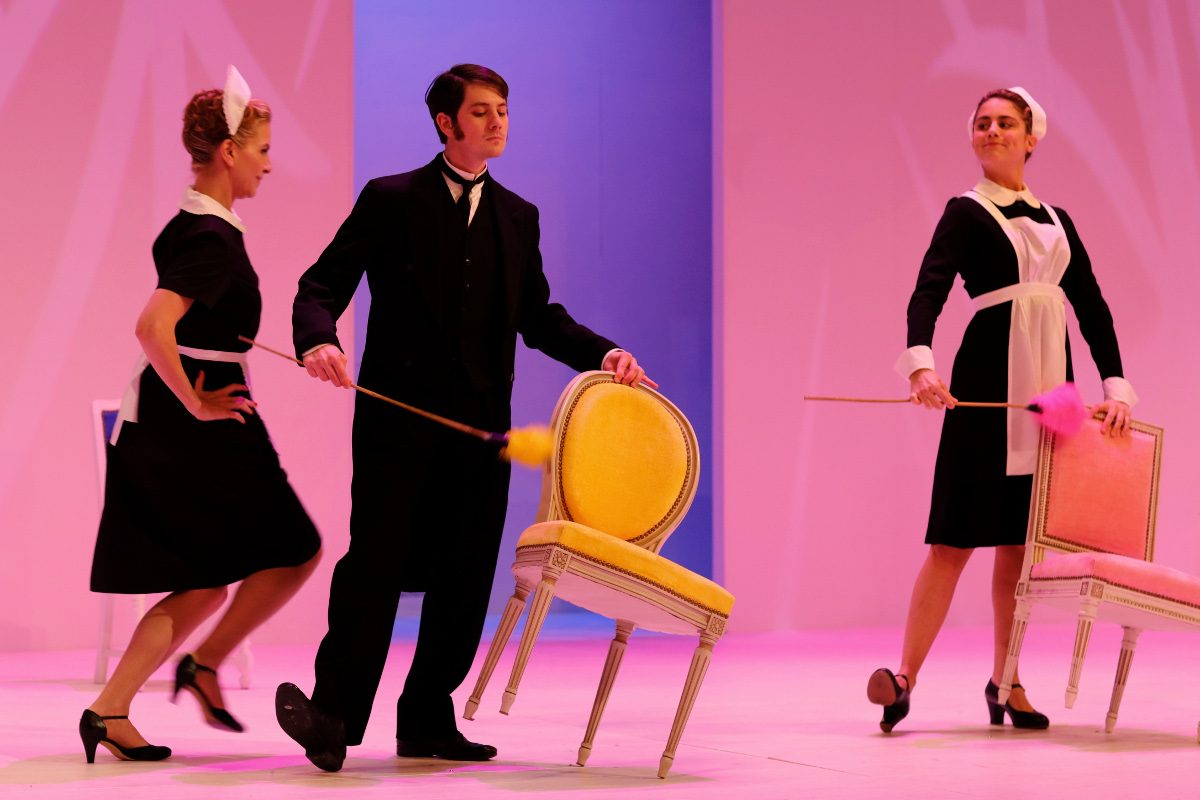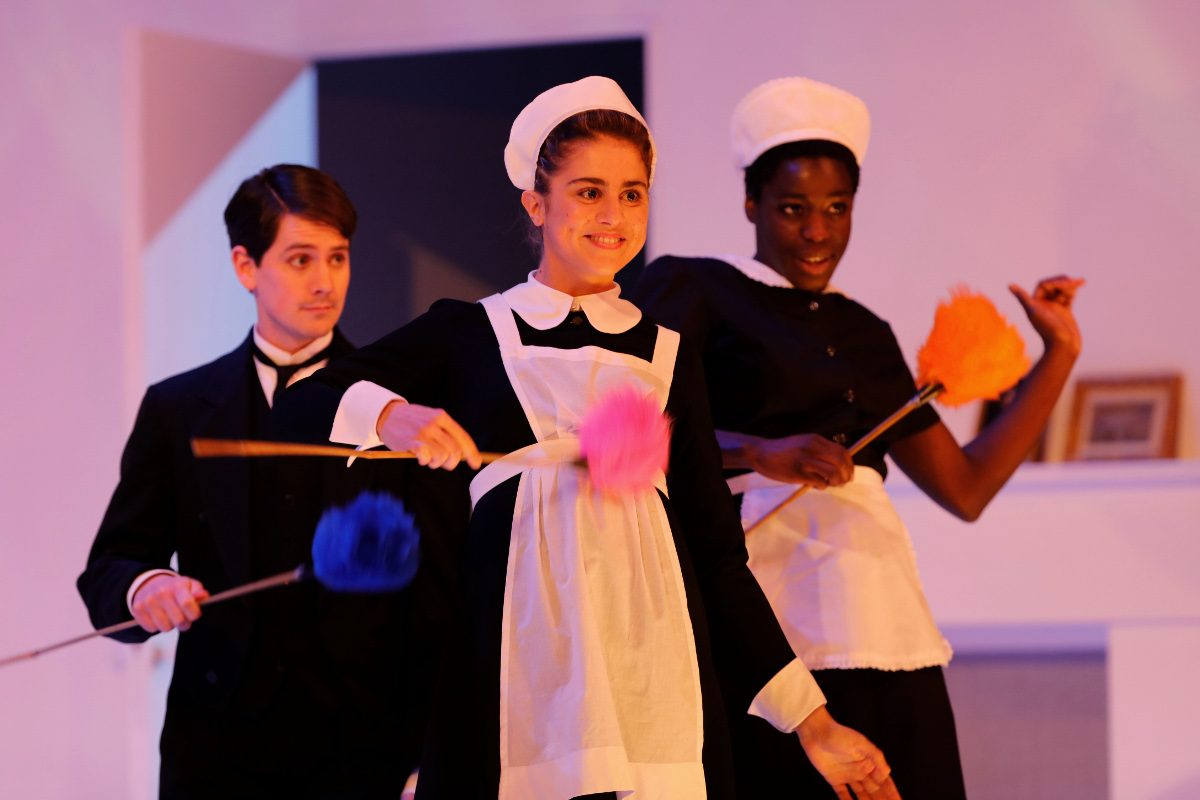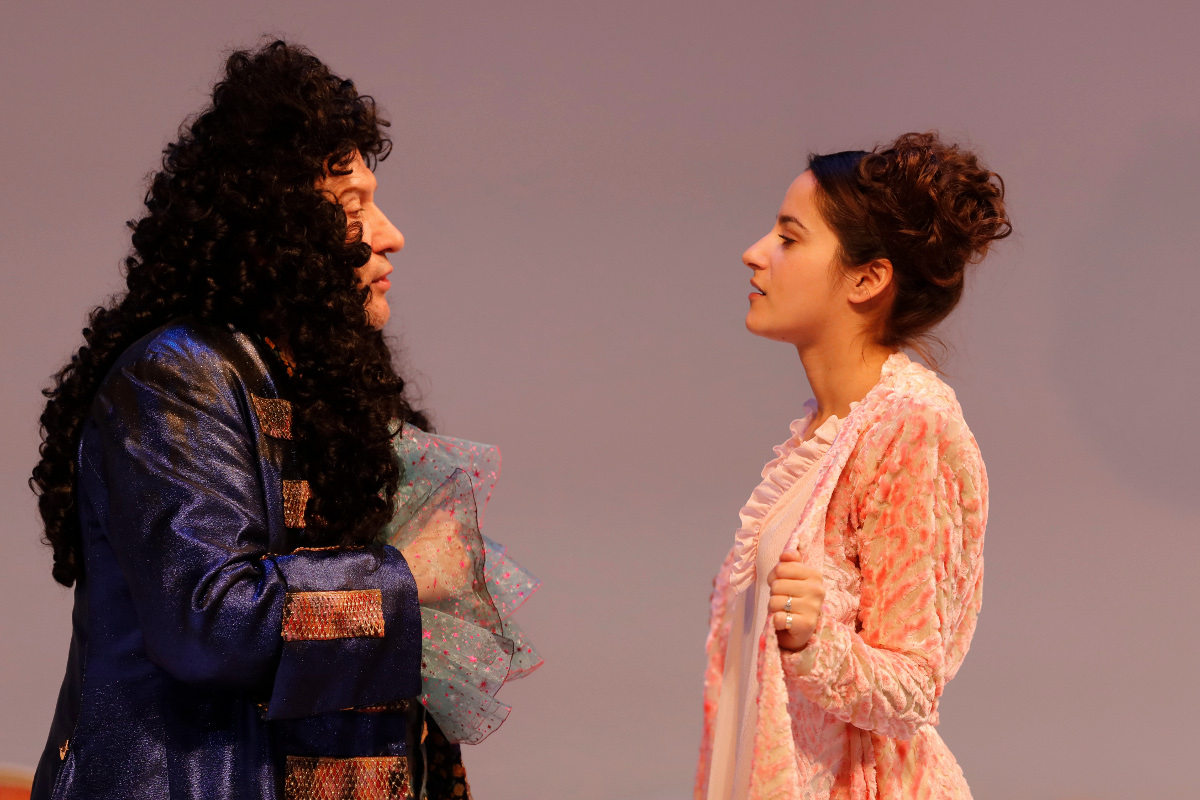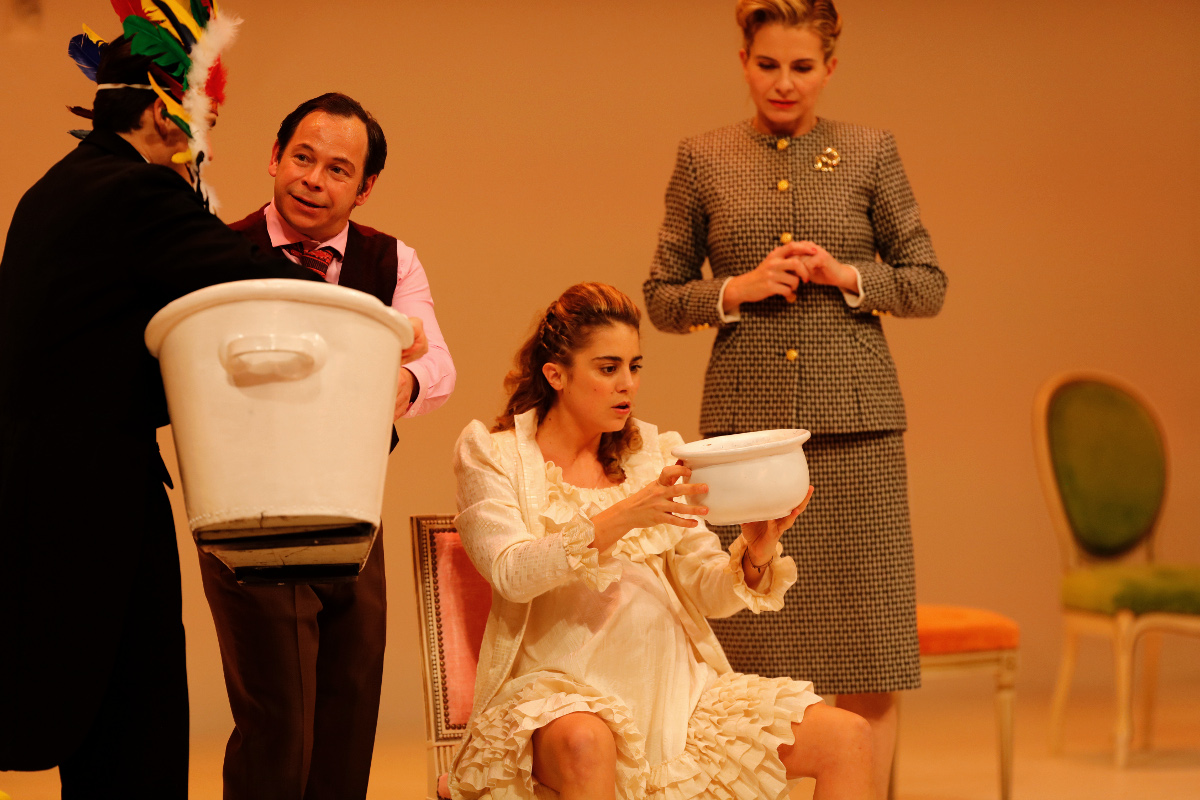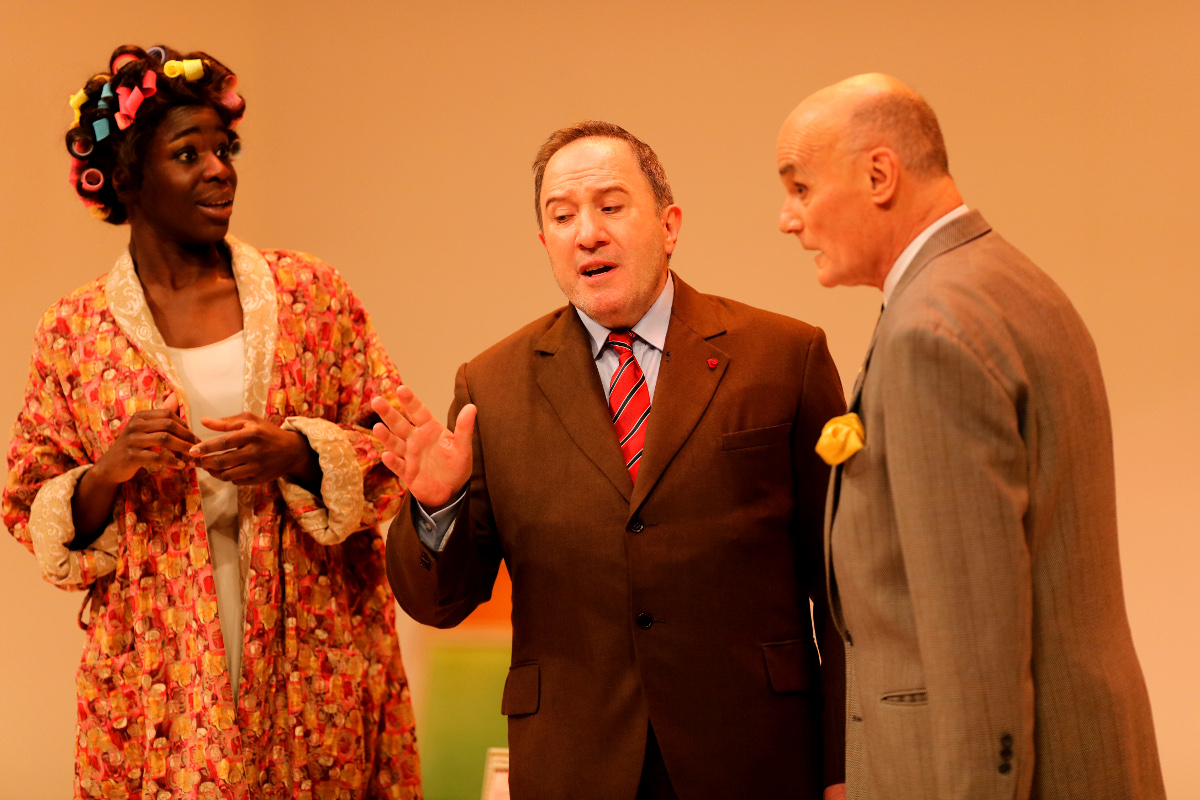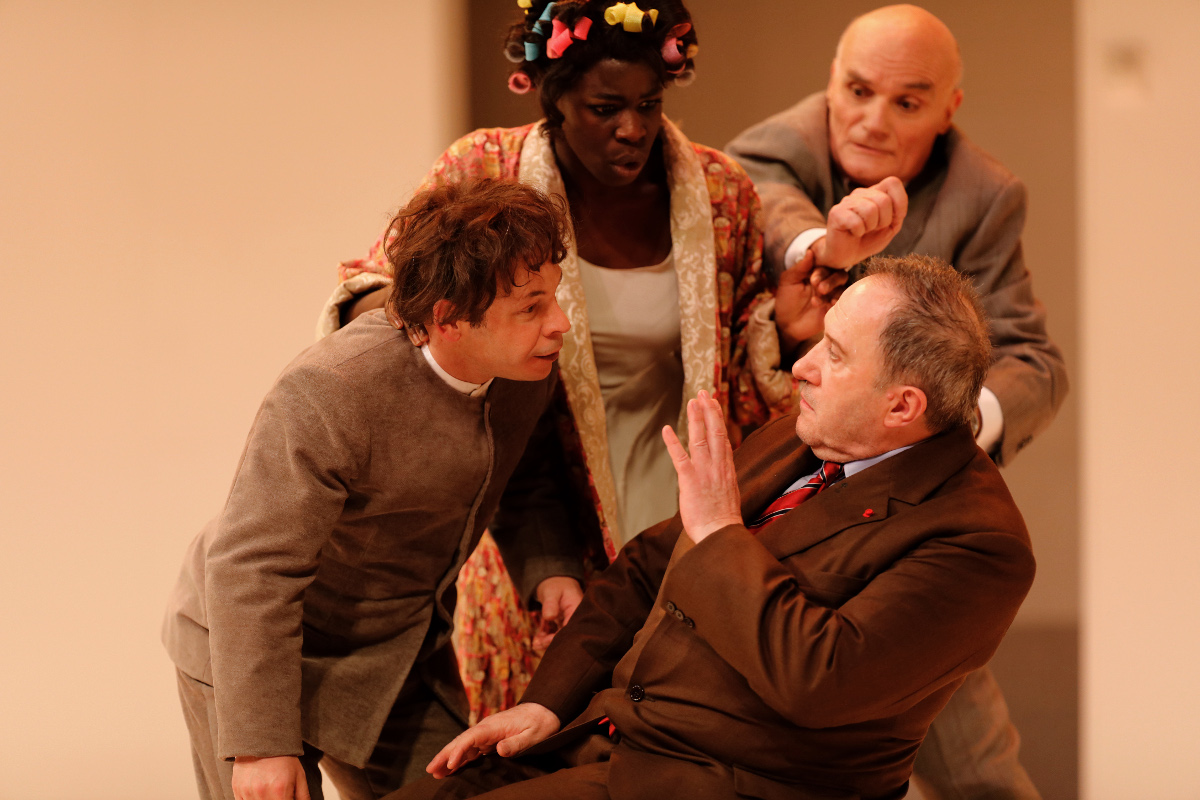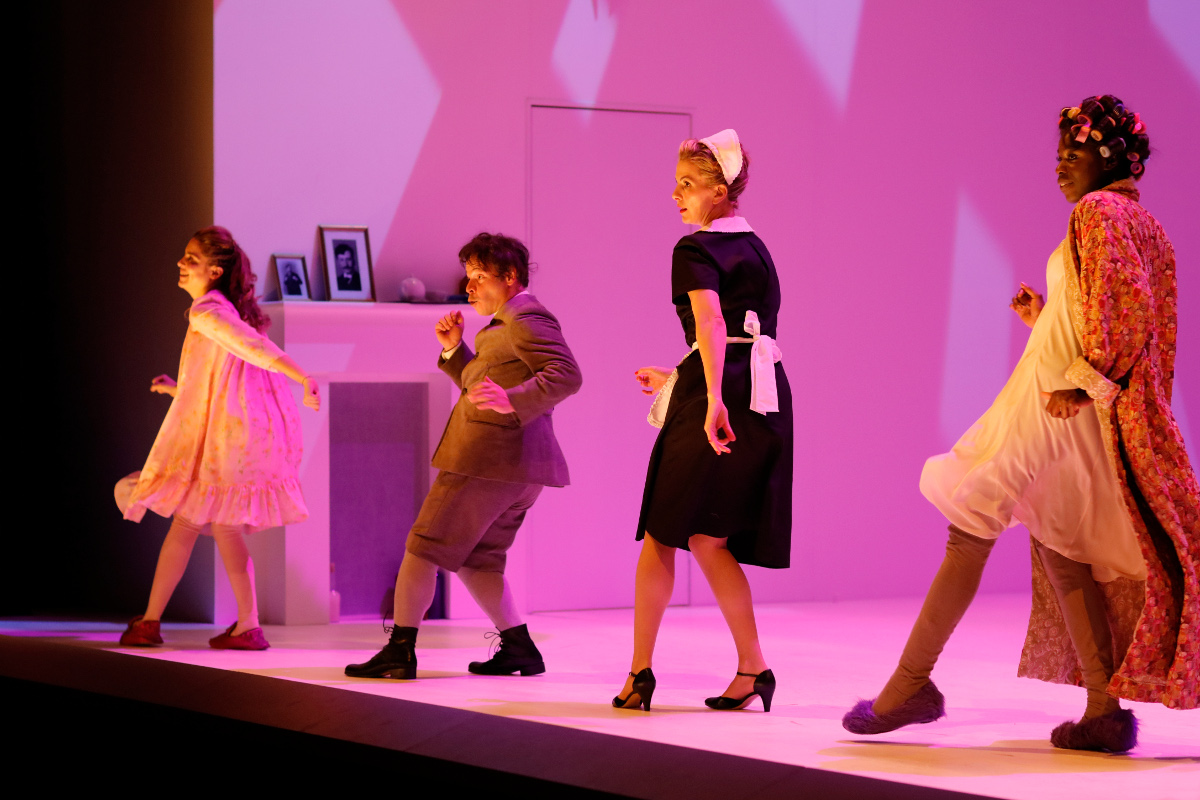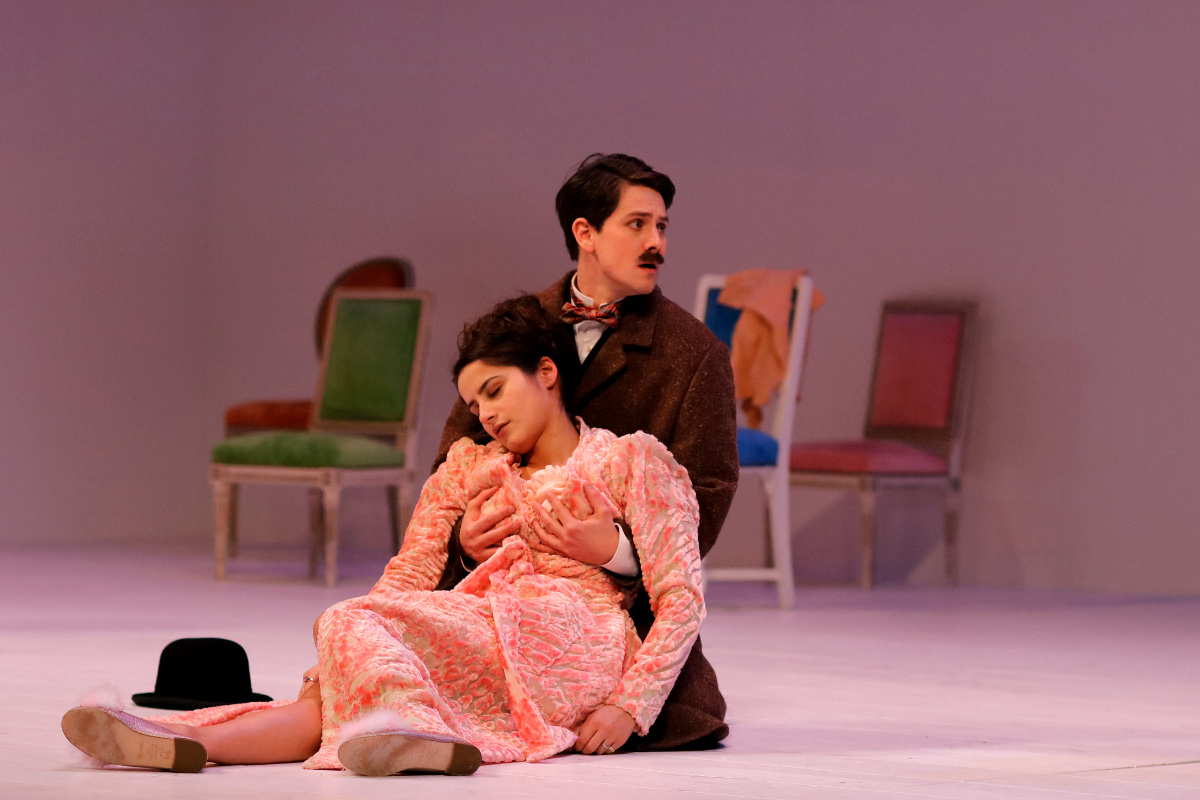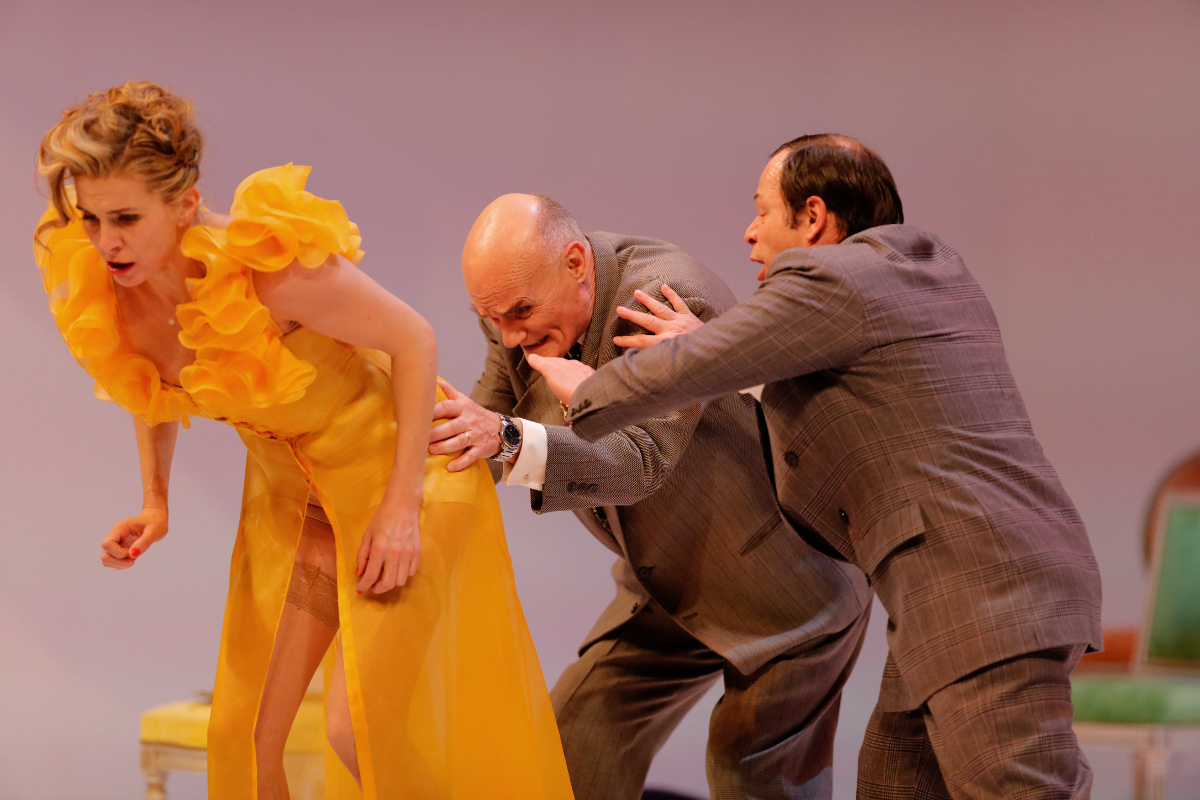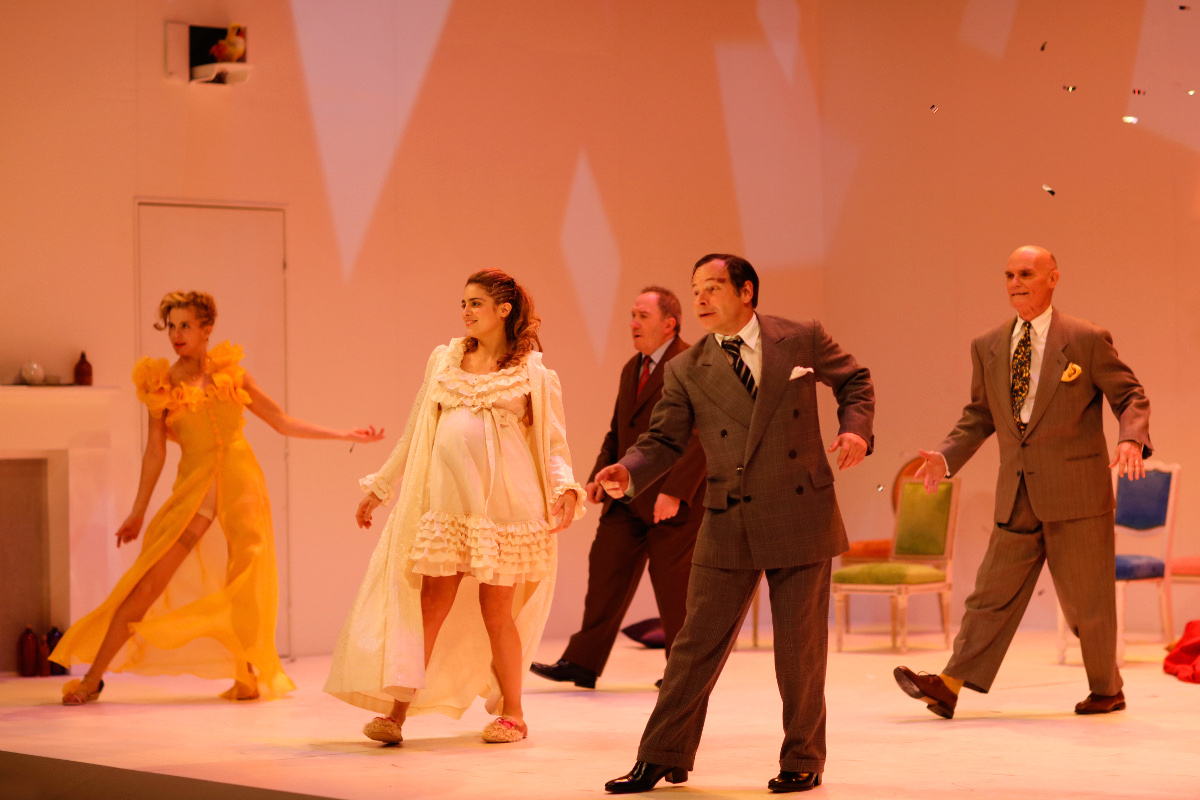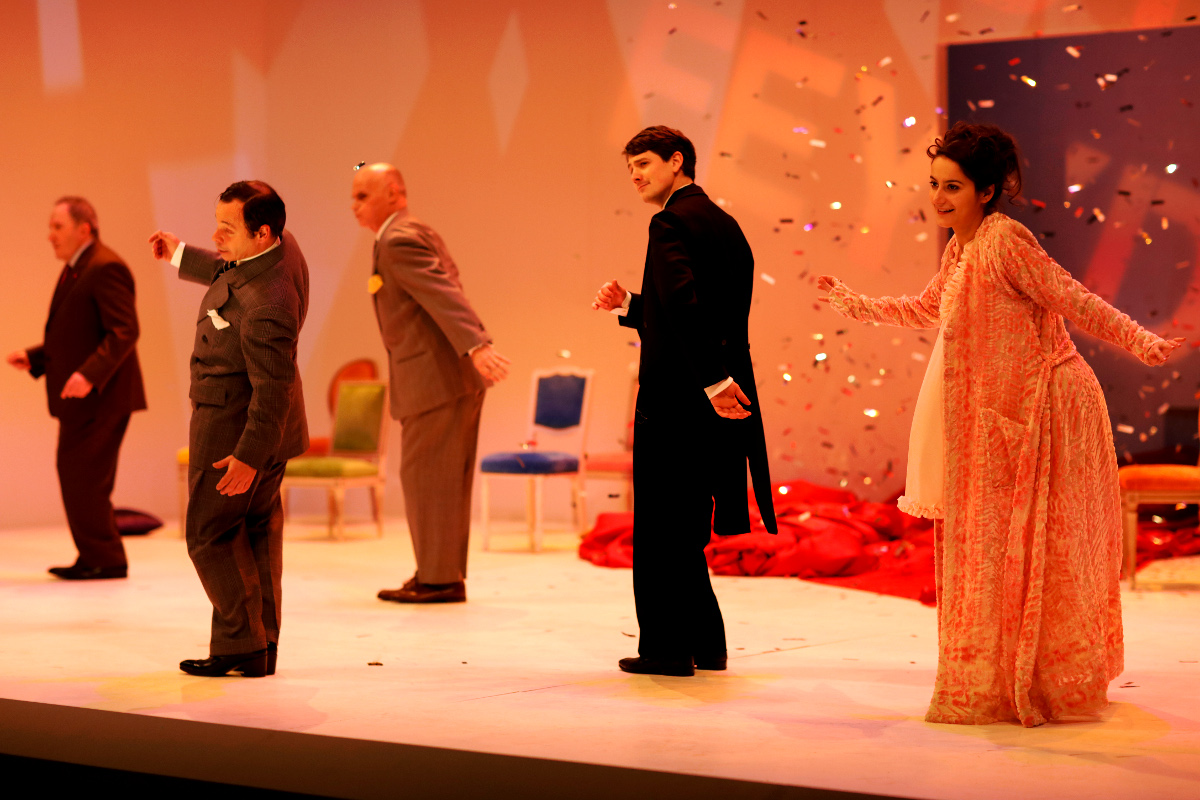It is the year 1907 and, out of the blue, Feydeau decides to change everything. His shows have been filling theatres for the last fifteen years. He is the uncontested king of the boulevard. Even the critics, after their initial distaste at these ‘minor’ works, have now lain down their weapons. Nobody can match his talent for construing, with such fiendish attention to detail, intrigues of the most outlandish kind, in which each detail generates a whole cascade of catastrophic consequences. Nobody can craft slapstick dialogues as well as he can, each painstakingly rooted in a dramatic movement which justifies every outburst. For, “theatre”, he wrote in 1905, “is above all the development of an action”. Yet, at the age of forty-five years old, and for no apparent reason, he decides to put his title up for grabs.
According to family tradition, it all happened one particularly rainy afternoon at a friend’s house. Feydeau preferred to stay in his room, asked for his writing things to be sent up, and Feu la mère de madame (Madame’s Late Mother) was written in just two days. Staged a few months later, the one-act play added to his list of successes. And justifiably so. Lucien and Yvonne’s truly horrible night together provides us with an explosion of comic goings-on. However, the virtuoso sequences of events and absurd knock-on effects are replaced with something else. Close-ups. This time around the plot appears to hinge on not very much at all. Feydeau needs nothing more than a husband who comes home rather late after a ball dressed up as Louis XIV, and a careless servant bearing bad news who knocks at the wrong door. The rest is all a matter of verve (“Ah ! non ! tu ne vas pas vomir ! je ne t’ai pas épousé pour ça !”), character portrayal (ranging from the irritable and selfish to the downright pathetic ) and invention, with each passing second, of details which eventually pile up to exploding point. A few months later, Feydeau left his marital home to take up lodgings at the Hôtel Terminus, which at least had the merit of making things perfectly clear.
Thus, it was at the Terminus that Feydeau completed his final cycle of theatrical works, visibly inspired by the break-up of his marriage: five variations in one act on the eternal war that wages in certain marital circles. On the way, we encounter such things as bed pans of all shapes and sizes, a wife who suffers from a wasp-bite on the rump, Georges Clemenceau (off stage), an aggressive macaroni and all sorts of stomach complaints, among which is the dismal-sounding ‘entérite relâchée’... Feydeau’s wish was to collate them under the generic title of Du mariage au divorce. However, illness prevented him from doing so.
Georges Lavaudant has already given us shining examples of his love of vaudeville comedy. Firstly, with his foray into the world of Labiche, with Un Chapeau de paille d’Italie (or ‘The Italian Straw Hat’) at the TNP in 1993. And then with Feydeau, Un Fil à la Patte (or ‘Cat Among the Pigeons’) at the Odéon in 2001. Rather than presenting his final works in their entirety, he has taken extracts from a whirlwind tour of this twilight word, mixing extracts from cited works with fragments from diverse sources, among which figure the opening pages of an unfinished comedy. A circus act of great proportions, leaning towards the nightmarish, is to be expected. And one which shifts from the highly provocative to the highly spiritual, somewhere between clowning at its darkest and verbal tight-rope walking. Lavaudant invites irreconcilable adversaries to dance, knives at the ready: man versus woman, child versus parents, and master versus servant. A severe case of all against all and every man for himself.
Cast
dramaturgy Daniel Loayza
adaptation, lights, direction Georges Lavaudant
set design and costumes Jean-Pierre Vergier
make-up, hairstyle, wigs : Sylvie Cailler, Jocelyne Milazzo
sound Jean-Louis Imbert
choreography Francis Viet
artistic assistant Moïse Touré
direction assistant Fani Carenco
costumes assistant Géraldine Ingremeau
stage manager cie LG Théâtre Laurent Cauvain
administrator cie LG Théâtre Elias Oziel
production manager cie LG Théâtre Juliette Augy-Bonnaud
production Compagnie LG Théâtre, Odéon-Théâtre de l’Europe
Length, about 1h40
avec le soutien du Cercle de l’Odéon



